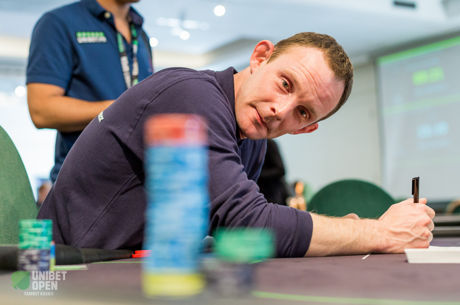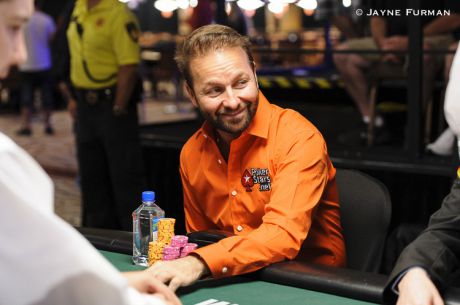Getting the Most Out of Twitch: Top Tips from Poker Streamers
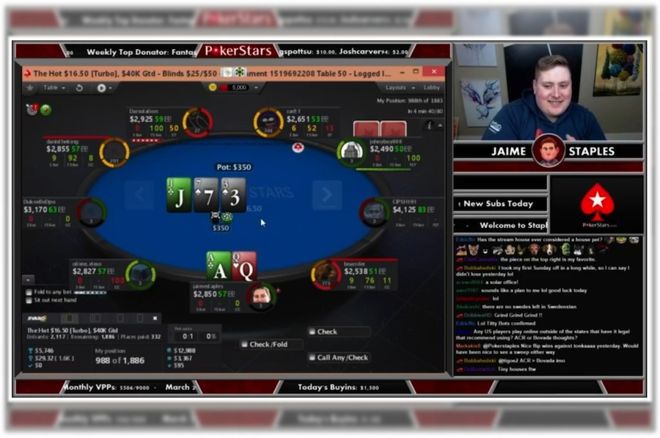
As many in the poker world are now well aware, Twitch has emerged as not only an entertaining medium for following tournaments and cash games, but a genuine resource for students of poker strategy.
I recently spoke with several hosts of popular poker Twitch channels �� four tournament players and one cash game specialist �� to pick their brains about how viewers can learn strategy via poker streams. Each shared insightful advice about what to do (and what not to do) if you��re hoping to advance your game by watching poker on Twitch.
The group with whom I spoke included
- Jaime ��PokerStaples�� Staples of Team PokerStars Pro Online who currently streams his multi-table tournament play five days a week for roughly eight hours a day;
- Darius ��KomodoDragonJesus�� Wadja, a cash game player who streams 3-4 days a week and is sometimes called the ��Godfather of Twitch poker�� as he��s been around since the beginning;
- Evan ��Gripsed�� Jarvis who typically streams his MTT play two or three times a week while also reviewing deep runs of others in his community;
- Casey ��bigdogpckt55�� Jarzabek who entertainingly streams his MTT play frequently and whose online accomplishments include once making the PokerStars�� Sunday Million final table in back-to-back weeks;
- Jonathan Little who with over $6.2 million in live tournament earnings brings a wealth of knowledge and experience to his stream around twice per week.
Advice for Beginners
If you��re relatively new to poker, Jaime Staples has some advice for how to start watching and learning from the streams.

��It��s all about having fun and learning the game. Watch as much and as many people as possible!�� Staples advises. ��It��s great for understanding the why of people��s decisions �� e.g., ��Why did they shove there?�� It takes a lot of effort to get good at the game. To be professional (especially today) it takes more than just knowledge. The actual application/execution takes hard work.��
Jonathan Little also encourages those watching to take copious notes as they do as opposed to watching the streams passively as though they were just another televised poker show.
��Diligently studying the streams will allow you to progress at a faster rate,�� explains Little. ��Always try to figure out why the pro is making each specific play.��
Evan Jarvis offers a great, related tip as well.
��Watching the VODs (replays) as opposed to watching the stream live can do great for your investment hourly,�� he notes. ��You can skip the boring parts, rewatch the important parts, and commit only the amount of time you have�� to give.
Jarvis also highlights that ��life strategy�� is just as essential as poker strategy for those looking to improve, a heading under which falls managing your time effectively �� including when studying the streams.
Chatting and Community Engagement
On Twitch, if you create an account, you can attempt to engage with the person streaming or with other viewers by typing in the chat box. However, the streamer playing poker for real money will usually have a delay ranging from three to 10 minutes, so your questions may take a while to get answered. For this reason, many viewers simply choose to ��lurk" and watch quietly.
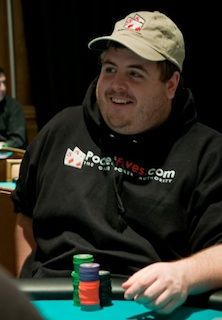
Darius Wadja nonetheless encourages his viewers not to sit quietly on the virtual rail. ��Interact!�� says Wadja. ��Twitch is amazing because it not only allows to you watch plays, but it also lets you ask questions.��
Casey Jarzabek echoes that sentiment. ��Get involved,�� he advises. ��Develop relationships even if it��s just with other poker players in the chats. Community is a key to learning and being good at poker. The more people you have to discuss hands with, the better you will be.��
Others, however, pointed out that learning via the chat box has its limits. Staples says that while he tries to interact with as many people as he can, ��[it] isn��t the place to be coaching other people, so it��s not going to be like a forum discussion would be, for example.��
Jarvis has a similar attitude.
��In general, unless it��s a live stream, stay away from the chat box,�� he suggests. ��On the busier streams, the teaching that comes from chat is rather low, especially since streamers are often on a delay and will not know which hand the player is referring to. Also other viewers often like to show how smart they are by giving smart responses, and there��s no way to judge the validity of the people speaking. Be careful who you listen to, and who you put your stock into.��
Jarvis adds ��it��s best to ask the streamers questions about hands after the stream is done, so that they can give you a response when they��re not under pressure from playing. This is where forums, Twitter, and [other forms of] discourse are ideal.��
Why Do You Do It?
You might wonder why these guys are giving away such valuable information for free and potentially raising the collective skill level of other poker players.
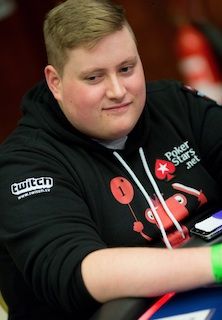
Many of these pros see streaming as a way of giving back to the community. Jarvis, for example, says ��if it weren��t for training sites, books, and friends, I never would��ve learned all that I know about the game, and had the amazing life experience I��ve had because of it.��
And Staples firmly believes that ��the way to grow poker is to share it with other people.��
From another perspective, you could say that it��s a perfectly natural way for a game to progress. As Little observes, ��all games get more difficult through time because people learn.��
I asked Wadja if this overall increase in skill level was any cause for concern. ��Should I be worried? Maybe. Am I? Not really.��
Such an attitude reflects the approach of both the streamers and those who watch and learn from them, all of whom are similarly motivated by the challenges the game provides and a desire to get better.
Mike Gano is a professional poker player, coach, streamer, and author. He��s been a consistent winner for over a decade in the online cash games, currently playing 200NL on 888poker. He��s created educational videos for CardRunners, DeucesCracked, Red Chip Poker, and Hold��em Manager. Check out his weekly poker strategy blog called Poker in a Box.
Want to stay atop all the latest in the poker world? If so, make sure to get PokerNews updates on your social media outlets. Follow us on Twitter and find us on both Facebook and Google+!

